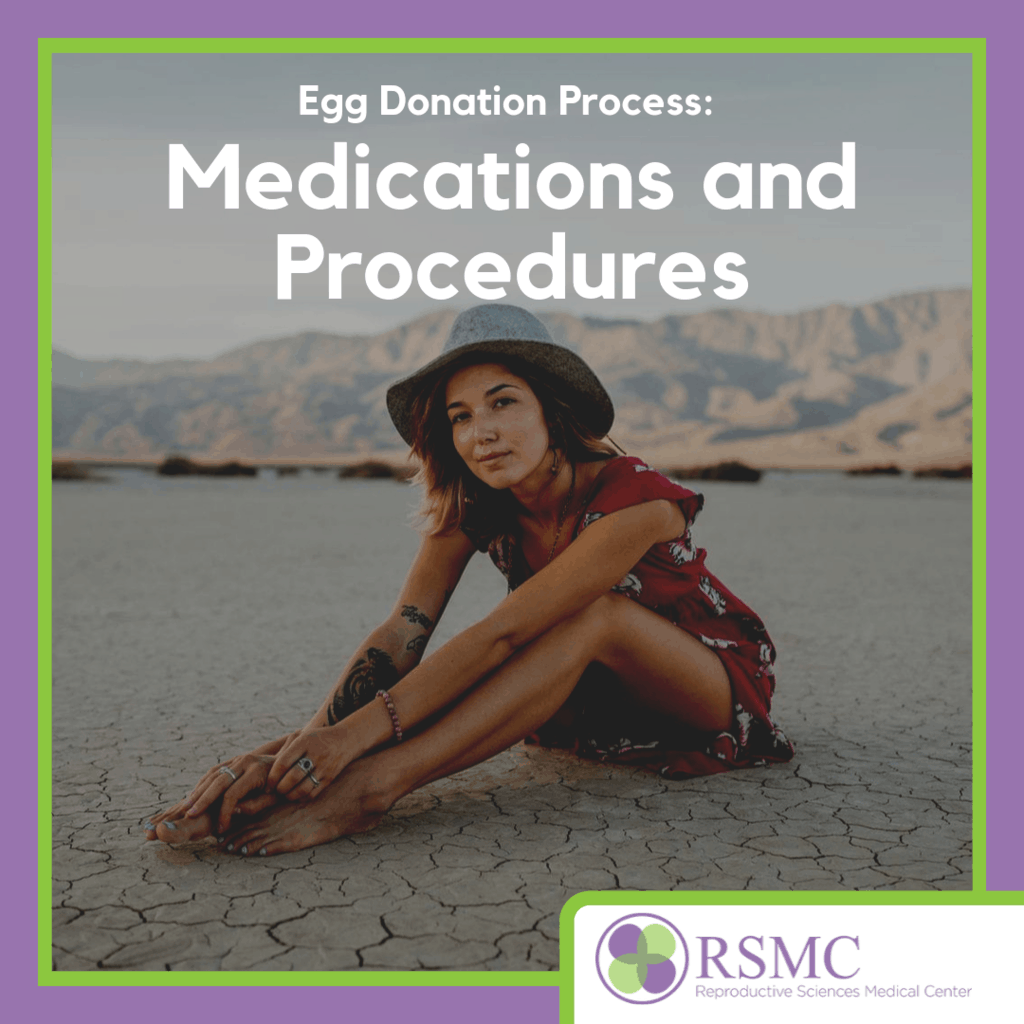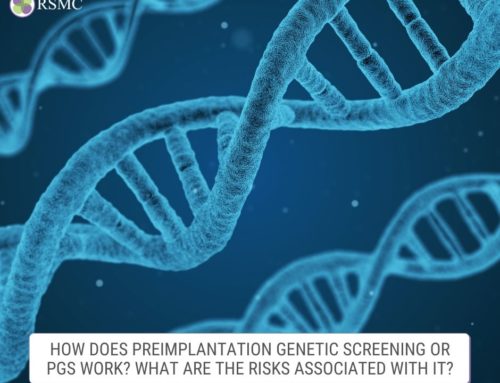If you are thinking to donate your eggs but have questions about the egg donation process and the medications involved, you are not alone. Many potential egg donors have concerns that prevent them from moving forward.
A question we often receive is “Is the procedure painful?” What we’ve found at Reproductive Sciences Medical Center & Fertility Agency is that the pain of egg donation process depends on the egg donor’s pain tolerance, her body’s response to the medications, the dosage she takes, and several other factors. To better explain it, we’ve broken down the process into three categories: injections, ultrasounds, and retrieval and procedure recovery.
Medications Through Injections
Will there be a lot of needles involved throughout the egg donation process? For some, there may be. You will have blood work done during the medical screening process to donate eggs and also need to take shots daily during you egg donation cycle. You may be taking shots for up to 21 days, depending on your body’s response to the medication. However, the needles are fairly small. You will administer injections in your abdomen, upper thigh, or buttocks.
For some, the injections are not very painful. If you end up donating multiple times, the medications that you take may be different each time. Some donors may have slight bruising at the injection site or may feel a slight tingling or burning sensation.
Every woman’s body is different. Some donors think that the injections are really painful, while some needed a spouse or friend to administer the injections for them. Most women know their level of pain tolerance, but keep in mind that you will be giving yourself shots daily.
Here’s a few more FAQs about Egg Donation.
Ultrasounds
While you are giving yourself daily injections, you will also have appointments throughout the process to see how your body is reacting to the medications. The egg donor & fertility agency they will perform blood work and a vaginal ultrasound for egg donation. The ultrasound will measure follicle size and count. This gives your physician an idea of how many eggs you will produce and how many of them will mature. The results will also determine if your dosage of medication needs to be increased or decreased. This is important, since your hormones need to be kept at a certain level in order to produce a high quality and quantity of eggs without over stimulation. Technically speaking, a vaginal ultrasound is considered invasive, however most women do not feel any pain.
Most of the time, the ultrasounds are quick and painless. Some women are curious as to how many follicles they have and their size. However, some do find ultrasounds invasive. Before becoming an egg donor, you should do your own research on the process to make sure that it is something you’re comfortable with. Doing this will also mentally prepare you for what to expect throughout the egg donation process.
Retrieval Procedure and Recovery
Before the retrieval procedure, you will be administered a trigger shot to stimulate your ovaries to release your eggs. The egg retrieval itself is the shortest part of the whole process. All of the injections and appointments prior take place over several weeks. The procedure takes about 15-25 minutes and you will be under light sedation. An aspiration needle will be guided by a transvaginal ultrasound to retrieve the eggs. Most women don’t have any discomfort due to the anesthesia.
After the retrieval, you may feel a little groggy from the anesthesia. You may also feel pressure in your lower abdomen and/or pelvic area. There will always be a nurse there with you to make sure that everything is alright and that you are feeling okay. The nurses will give you pain medications to take, if needed, over the next few days.
The nurse will also recommend that you rest the day of the retrieval, please follow their advice and allow your body to recover. This would be the perfect time to catch up on your favorite show or watch any movies you’ve had on your list for a while. You may want to take it easy for about a week after the retrieval. This means taking the pain medications when needed and not going to the gym. You can resume daily activities the day after the procedure, however some women do experience bloating and cramping, which may extend your recovery time.
Here’s a few more FAQs about Egg Donation.
Moving Forward
Is the whole process pain-free? The short answer is no. As with any other medical procedure, each person experiences things differently and each body is different.
Do some donate eggs again? Yes! For many the pain, cramps and bloating are worth it to help give the gift of life.
If you are looking for motivation as to why you should donate your eggs, then consider it to be an opportunity to help a couple start their own family. If you are ready to become an egg donor, click on the button below to see if you qualify.























